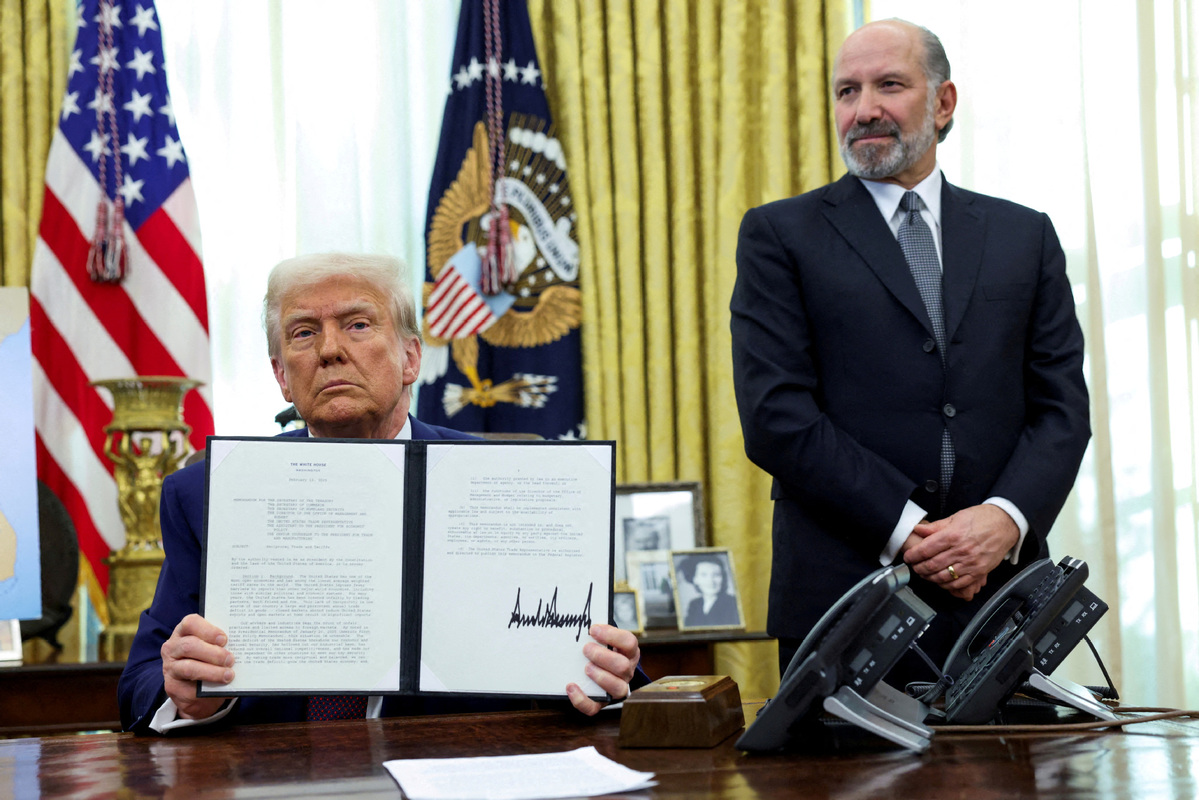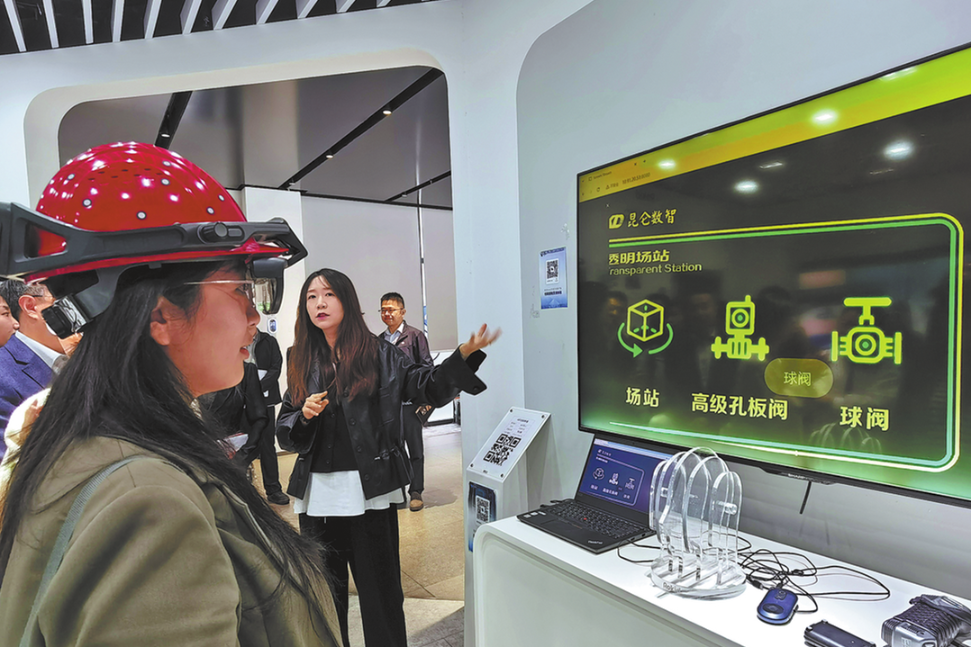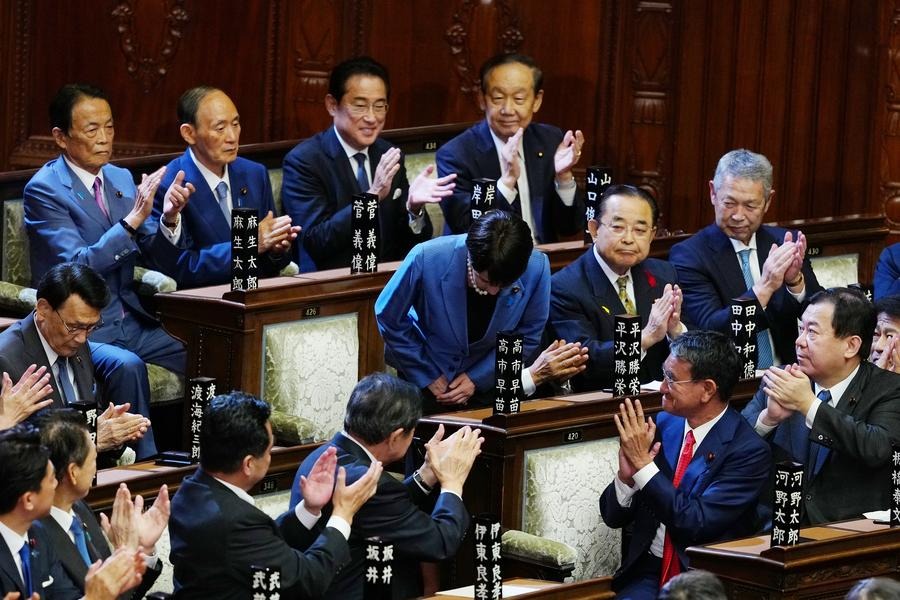Loss of trust and credibility also weighs in trade balance


US President Donald Trump announced his decision last week to impose "reciprocal tariffs" on other countries in the coming weeks or months. This means that all US trading partners are facing new tariff threats. That involves about 5,000 kinds of commodities from 186 countries and regions, forcing relevant parties to negotiate with the United States to avoid a tariff war.
Shoot for the moon. Even if you miss, you'll land among the stars. The Trump administration seems addicted to that tactic in a firm belief that it serves the US' interest.
But its practices of weaponizing tariffs, wantonly destroying the international trade order, and using coercion to maintain so-called US interests have shaken the foundation of the postwar world order created by the US itself by undermining the trust of various countries in rules and order.
Reviewing the US' development since early last century, Nobel-winning economist Daron Acemoglu observed in a recent article that a key pillar of what is regarded as the American Century has been the country's ability to shape the world order in a way that benefits its own economy. But the US' tariff war puts the US' efforts to boost its own interest against those to consolidate and improve the world order.
Smart businesspeople value their credibility. Only the opportunistic gold rushers and speculators blindly chase immediate interest. Washington should weigh the impacts of its tariff policy on the US' credibility, and trust in the US-led world order.
Even for US allies, such as the European Union and Canada, the US' tariff war undermines their trade relations with and trust in the US. In addition to their promises to take countermeasures, the responses made by these affected parties invariably convey their confusion and disappointment with the Trump administration's unscrupulous resort to tariff wars to ensure "America first".
"This is a moment," said Canadian Prime Minister Justin Trudeau commenting on Trump's tariff intimidation. "This is a time in our country's history that really matters."
"It is also important that everyone sticks together. Difficult times require such full solidarity," said Prime Minister Donald Tusk of Poland, which holds the EU presidency.
The EU's attitude toward China has become significantly more open in the past month. One of the causes is that after the Trump administration's constant threats to increase tariffs on the EU, the bloc's decision-makers increasingly believe that the US has changed from a seemingly unquestioned ally to an unreliable factor, if not a threat to the bloc's immediate economic interest.
After Trump took office on Jan 20 — the new US leader started negatively commenting on the EU from day one — European Commission President Ursula von der Leyen said on different occasions that there was space to deepen trade ties and even "find agreements" with Beijing, in "an era of hypercompetitive and hyper-transactional geopolitics".
"We will keep de-risking our economic relationship — as we have been doing in recent years. But there is also room to engage constructively with China — and find solutions in our mutual interest," she said in a speech before the EU's diplomatic corps in Brussels earlier this month.
The bloc's reaction to the new US administration was further reinforced after US Vice-President JD Vance lambasted European governments for betraying their values at the Munich Security Conference on Friday. In his closing remarks at the security forum on Sunday, Christoph Heusgen, chairman of the MSC, said emotionally: "This conference started as a transatlantic conference, after the speech of Vice-President Vance on Friday we have to fear that our common value base is not that common anymore."
The crisis of confidence in the US will inevitably spread to other economies, forcing them to seek alternative trading partners to reduce their dependence on US trade and accelerate the de-dollarization of international trade, which will weaken the international status of the US dollar and shake the foundation of US financial hegemony.
These collateral damages of the US' tariff war have to be taken into account to assess the US' gain and loss from its "reciprocal" duty campaign.

































